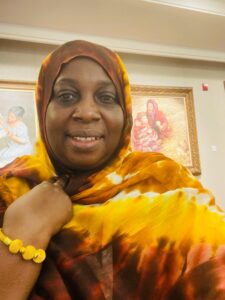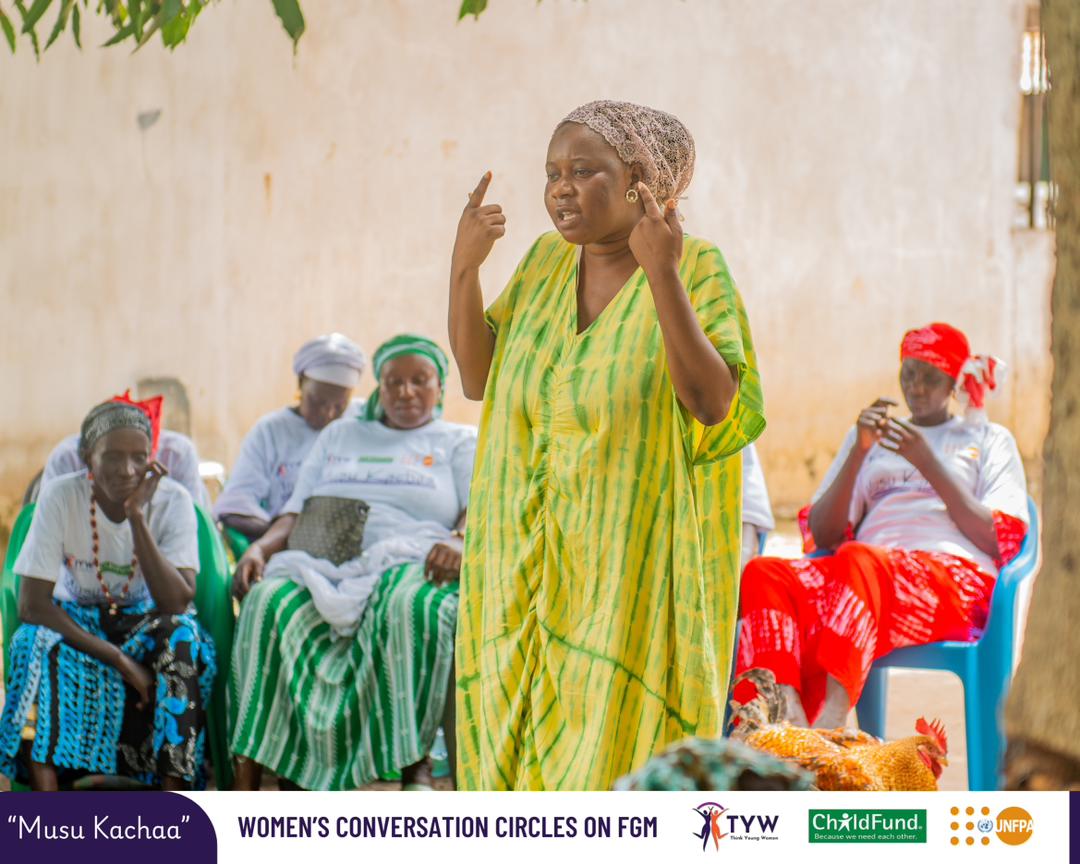By Amie Sanneh
Across The Gambia, from busy clinics to quiet villages, The Senegambia Observer’s Amie Sanneh hears stories of FGM wounds that never heal and a struggle that continues—long after the blade is put away.
When darkness falls and the house grows quiet, Aminata’s mind drifts not to the joys of motherhood, but to a pain that refuses to let go. For her, childbirth isn’t just a matter of life and death—it’s a reminder of a wound that never truly healed.
“The pain is unimaginable,” she says, voice trembling. “Every time I have a baby, they have to cut me again just so the baby can come out. Then they stitch me back. I only learned it was because of FGM after my third child, when the midwife told me, ‘Since you people don’t stop FGM, you’ll continue to suffer like this.’”
Aminata—whose name has been changed for privacy—is one of thousands of Gambian women who live with the enduring consequences of Female Genital Mutilation (FGM).
“Every time I have a baby, they have to cut me again just so the baby can come out. Then they stitch me back. I only learned it was because of FGM after my third child”, Aminata – FGM victim.
The practice has been illegal in The Gambia since 2015, yet remains widespread, especially in rural communities. Now expecting her fifth child, Aminata admits her greatest fear isn’t labour itself, but the pain she’s forced to relive each time.
“Since I got married, I’ve never known pleasure in sex—just pain,” she confides. “I only do it to satisfy my husband. I don’t want my daughters to go through what I did.”
She’s made sure her own girls have been spared the blade. But Aminata knows not every mother can—or dares—to defy tradition. Despite clear criminalisation under the Women’s (Amendment) Act 2015, FGM persists as one of The Gambia’s most entrenched forms of gender-based violence.
A 2024 UNICEF report paints a stark picture: about 73 percent of Gambian women aged 15 to 49 have undergone FGM—one of the highest rates in West Africa.
“We see the same things again and again – Pain, excessive bleeding, infection, urinary blockage, tearing during childbirth – Fatou Camara Midwife
Behind these numbers are stories like Mariama Sanyang’s, who was cut at age seven. “We were told we were going to visit family,” she recalls, voice barely above a whisper. “An old woman tied a wrapper over our faces so we couldn’t see. Then she used a razor blade. All I remember is the burning pain.”

Now 30, Mariama is still haunted by that day. She’s endured recurring infections, severe menstrual pain, and the relentless sense that something was stolen from her. “It affects everything—your body, your confidence, your marriage. But people still say it’s to make girls ‘clean’ or ‘obedient.’ It’s not. It’s torture.” Mariama now tells her story to warn others. “FGM is not a rumour—it’s real, and it’s harmful. Listen to survivors. Report it before it happens.”
At hospitals and clinics, the fallout is painfully familiar. Fatou Camara, a senior midwife, sees the consequences daily. “We see the same things again and again,” she says. “Pain, excessive bleeding, infection, urinary blockage, tearing during childbirth. Long-term, it leads to sexual dysfunction, infertility, and complications that put both mothers and babies at risk.”

Camara believes health workers must be more than caregivers—they must be changemakers. “We need to make FGM counselling part of regular health services. Communities must understand this is not just a cultural issue—this is about human rights and health.”
But changing minds takes more than medical advice. It requires justice, too. Sophie Manneh, who leads Safe Space for Girls – an initiative that empowers women to freely discuss sensitive women’s health and wellbeing – was outraged when three women convicted of FGM in the Upper River Region were fined just D10,000 each.
“You can’t exchange a child’s life for money—certainly not for D10,000,” she says. “That verdict sends the wrong message: that FGM isn’t serious.”

Barrister Ngenarr Yassin Jeng, a gender rights advocate, agrees. “D10,000 is not an appropriate fine, given that the infant ended up dying.
“The prescribed fine under the Women’s Amendment Act is D50,000 for active participants and D10,000 for non-disclosure.” With family members involved, “the highest fine and conviction should be administered,” she said.
Barrister Jeng warns that lenient sentences embolden offenders and weakens the fight against FGM. “It sends a message that people can just throw around money and avoid accountability,” she explains.
“This makes it harder to deter acts of FGM.” She insists that parents who insist on it should face the law as there is a lot of accessible information about the dangers of FGM.
Although recent prosecutions show the law isn’t just for show, Jeng says much more must be done. “It does set a precedent that the law is valid and will be used, but it also gives room for relaxed sentencing, which is quite unfortunate,” she observes. “More work is needed in prevention, prosecution, and accountability.”
She calls for more grassroots education and engagement. “FGM is still happening in secret, and people are still dying from it. These tragedies should be a wake-up call for everyone,” she said.
Campaigns and survivor advocacy have made some progress. But activists fear that inconsistent law enforcement—and the threat of political backsliding—could erase hard-won gains.
or survivors like Aminata and Mariama, the scars are both physical, invisible and indelible. Yet their voices, once silenced, now ring out with hope. “We can’t change what happened to us,” Aminata says. “But we can speak out, so no other girl has to suffer like we did.”
Across The Gambia, that message is spreading—quietly, bravely, urgently—through the voices of women who refuse to let pain or tradition define their future.
FGM, as defined by the World Health Organization, involves the partial or total removal of female genitalia for non-medical reasons. The risks are immense: severe bleeding, infection, infertility, childbirth complications, and higher newborn death rates. Yet for many families, the belief persists that FGM preserves purity or controls sexuality.
Globally, the United Nations has set a goal to end FGM by 2030. For Gambian women, that future cannot come soon enough.



